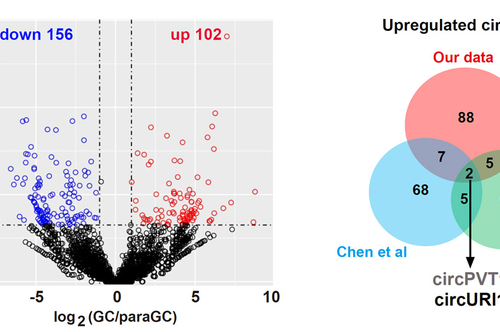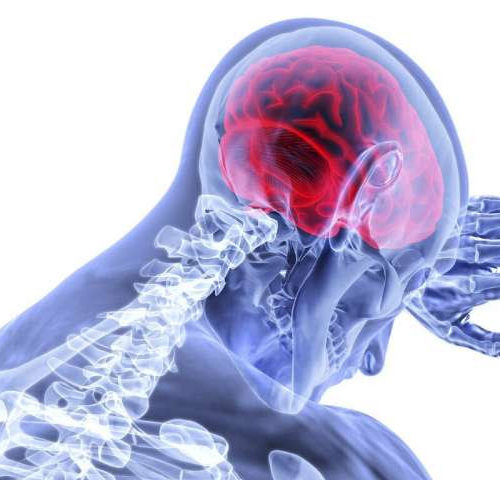IMAGE: IDENTIFICATION OF CIRCURI1 CREDIT: WANG XIAOLIN Recently, researchers led by Prof. LIN Wenchu from High Magnetic Field Laboratory, Hefei Institutes of Physical Science (HFIPS), Chinese Academy of Sciences (CAS), in collaboration with Prof. SHAN Ge and Associate Prof. HU Shanshan from the University of Science and Technology of China, proposed an elegant mechanism that one circRNA called...
Tag: <span>gastric cancer</span>
PPIs Associated With Gastric Cancer Regardless of H. Pylori Eradication Status
By Lisa Rapaport May 21, 2021 (Reuters Health) – Taking proton pump inhibitors (PPIs) is associated with increased risk of developing gastric cancer regardless of Helicobacter pylori eradication status, a Korean study suggests. Researchers examined data in the Korean National Health Insurance Service database on 6,877 patients who initiated PPI therapy and 6,877 propensity matched controls who...
The two sides of inflammation—the cure and the curse
by Delthia Ricks , Medical Xpress Credit: Pixabay/CC0 Public Domain One of the many wonders—and mysteries—of human biology is the complex response of the innate immune system, which is known for its swiftness in annihilating invading pathogens and capacity to mount an explosive inflammatory response. The body’s ability to rapidly sense and react to infiltrating...
Immune Protein IL-17A Responsible for Lethal Side Effects of Gastric Cancer
The formation of scar tissue, or fibrosis, as gastric cancer disseminates throughout the peritoneum can be more lethal than the cancer itself and can interfere with chemotherapy. Researchers from Kanazawa University have now found that proinflammatory cytokine IL-17A from mast cells heavily influences the degree of fibrosis and causes structural changes in peritoneal cells. Preventing mast cells...
Incidence of early-onset gastric cancer increasing in the U.S.
(HealthDay)—The incidence of early-onset gastric cancer has been increasing in the United States, and it seems to be distinct clinically and genetically from late-onset gastric cancer, according to a study recently published in Surgery. John R. Bergquist, M.D., from the Mayo Clinic in Rochester, Minnesota, and colleagues examined clinical and genomic characteristics and risk factors...
Eliminating Common Bacterial Infection Significantly Decreases Gastric Cancer Risk
While it is well known within the medical community that there is a link between the bacteria Helicobacter pylori (H pylori) and rates of gastric cancer—commonly referred to as stomach cancer—the rates and risk among Americans has been largely understudied. Now, after analyzing records of close to 400,000 patients, researchers in the Perelman School of...
T2DM increases gastric cancer risk after H. pylori eradication
Ka Shing Cheung, M.B.B.S., M.P.H., from The University of Hong Kong, and colleagues gathered data from 46,460 patients in Hong Kong who were aged 45 years or older and had received clarithromycin-based triple therapy for H. pylori infection, consisting of a proton pump inhibitor prescribed with clarithromycin and either amoxicillin or metronidazole. Patients were followed for a median...
Cardiff University researchers shed light on development of gastric cancer
Cardiff University researchers have uncovered new information about the underlying mechanisms for gastric cancer, providing hope of potential new therapies in the future. The team, at the University’s European Cancer Stem Cell Research Institute, found they could stop gastric cells dividing and growing by deleting a particular cell-surface receptor implicated in the function of stem...
How Helicobacter pylori causes gastric cancer
A) Healthy epithelial tissue compared with infected epithelial tissue (green) in the human stomach destroyed by Helicobacter pylori. B) Three magnified bacteria (light green) viewed under an electron microscope. Red arrows indicate the …more Gastric cancer is one of the five most fatal types of cancer. According to the statistics of the World Health Organization...
Differences in subtypes of gastric cancer may determine prognosis and response to treatment
In 2014, The Cancer Genome Atlas (TCGA) project discovered that there are four molecular subtypes of gastric cancer: Epstein-Barr virus subtype (EBV); microsatellite instability subtype (MSI); genomically stable subtype (GS); and chromosomal instability subtype (CIN). Lee said most patients with early-stage gastric cancer are treated with a surgical resection, followed by chemotherapy. “However, outcomes vary...
- 1
- 2



